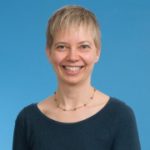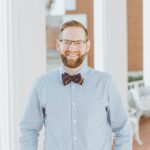Theory and Methods
Syllabi - Topic: Theory and Methods - 30 results
Select an item by clicking its checkboxA 2011 course by Christine Thomas at the University of California Santa Barbara examines "the production of archaeological data and their use in reconstructions of past human religious experience, both in historic and prehistoric times, and in the Old and New Worlds" with a focus on "method and theory."
A 1999 course by Gail Hamner at Syracuse University "introduces students to many of the classic texts that explore the phenomenon of religion."
A 2011 course by Ann Grodzins Gold at Syracuse University "explores a range of aims, strategies and genres for writing religion in multiple contexts of culture, history and politics."
A course by Christopher Johnson "introduces students to a number of ways to approach the academic study of religion along with seven major religious traditions (Islam, Christianity, Confucianism, Hinduism, Buddhism, Judaism, and Daoism)."
A 2005 by Levanya Vemsani at St. Thomas University "is an introduction to Ritual studies theory and research methods, focussing on the experience, knowledge and research."
A 2010 course by Bruce Janz at the University of Central Florida for Humanities & Religious Studies majors; course theme is globalization.
A 2005 course by Joseph Adler at Kenyon College "introduces students to the variety of academic approaches to the study of religion . . . religious studies as an academic discipline, the phenomenology of religion, history of religion, the sociological and anthropological approaches, the psychology of religion, ecological approaches, feminist theory, and postmodern theory."
A 2012 course by Joanne Punzo Waghorne at Syracuse University "introduces graduate students to some of the classical texts, methods and approaches in use in the field."
A 2003 course by Jim Kanaris at McGill University "examines some of the philosophic sources that have formed contemporary academic reflection on religion. . . . to an understanding of the philosophic sources informing contemporary discussions of religion (genealogy, deconstruction, postcolonialism, feminism)."
A 2000 course by Jeffrey Carlson at DePaul University is a capstone course for Religious Studies majors.
A course by Kang Na at Westminster College.
A 2016 course by Steven Weitzman at the University of Pennsylvania aims to develop the teaching capacity of students working "in a secular academic setting" about religion.
A 2002 course by Ivan Strenski at the University of California-Riverside on significant theories and methods within the modern study of religion.
A 2004 course by David Hall at Centre College explores "the idea of religion from an interdisciplinary perspective. We will look at the way in which religion is theorized and then studied in the fields of the history of religion, sociology, psychology, and philosophy."
A2007 course by Mark Hulsether at the University of Tennessee-Knoxville "provides an orientation to some of the major analytical frameworks for the academic study of religion."
A course by Chad Bauman at Butler University provides "an intensive, roughly chronological overview of various approaches to the study of religion, as well as an introduction to some of the field's most prominent scholars."
A 2008 course by Peter Slade at Ashland University provides structure and support to religion majors "researching and writing their religion thesis."
A 2018 course by Lynn Neal at Wake Forest University uses "myth and ritual, sources and stereotypes, identity and aesthetics, and more" to ponder what religion is and how to study it.
A 2011 course by Daniel Alvarez at Florida International University "is an introduction to the study of religion. It will analyze various elements common to world religions and their expressions. In addition, it will examine the search for the transcendent and its implications at both the personal and the social level."
A 2013 course by Janet McDaniel at Florida International University "serves as an introduction to the study of religion. The course explores the ways in which people understand and express religious experience."
A 2015 course by Ken Brashier at Reed College is "not so much focused on particular religions as on the lenses through which we view religion. . . . [through] the 20th and 21st century âgreatsâ in the field of religious studies . . . ."
A 2014 course by Margaret Ann Crain at Garrett-Evangelical Theological Seminary examines the "theological and philosophical bases, goals, and methods of qualitative research in congregations and draw[s] on the fields of congregational studies, Christian education, evangelism, practical theology, sociology, anthropology, and educational evaluation."
A 2018 course by Tina Pippin at Agnes Scott College explores "the concept of religion/s in scholarship and culture, engage[s] theories and methods in religious studies, and use[s] interdisciplinary tools to explore the religious worlds in Atlanta and beyond."
A 2018 course by Jill DeTemple at Southern Methodist University introduces "several social scientific approaches to the academic study of religion. We will investigate the history and use of anthropological, sociological, and psychological theory and method in relation to the study of religion, especially as these fields relate religion to broader cultural, societal, and physiological fields of knowledge."
A 2019 course by Madison Tarleton at the University of Denver/Illiff School of Theology introduces "students to the academic study of religion" through a survey of "early theorists and anthropologists as well as examine how these theories evolved over time."
A 2017 course by Jill DeTemple at Southern Methodist University provides "an introduction to a wide variety of religious traditions, communities and practices within the context of globalization" through modern methods in the field of the study of religion.
A 2018 course by Peter Gottschalk at Wesleyan University for religious studies majors on "how the discipline of the study of religion creates knowledge."
A 2020 course by Steven Weitzman at the University of Pennsylvania asks "What is the value of studying religion in a higher education setting? How does one bridge between a critical approach to religion and the beliefs of one’s students? The course will broach these and other questions through readings and discussions meant to help you think through the challenges of teaching about religion to college students, and will give you opportunities to develop your own approach to them."

